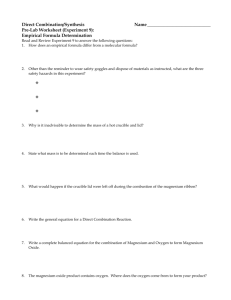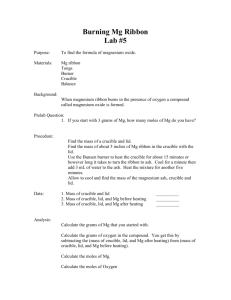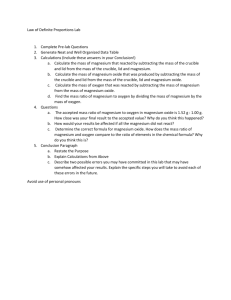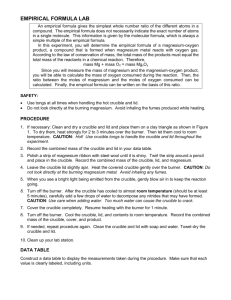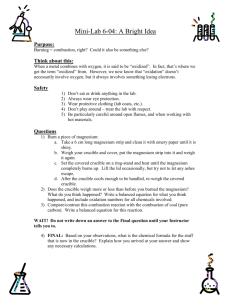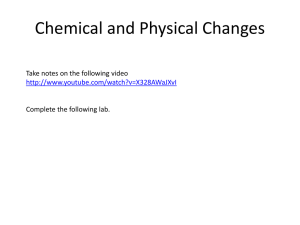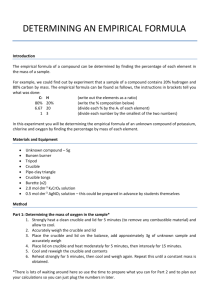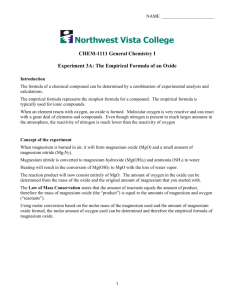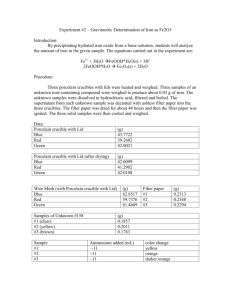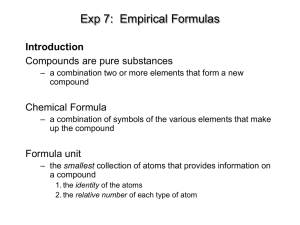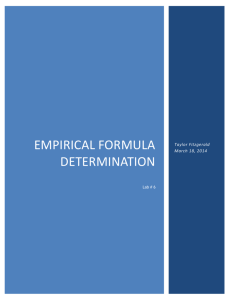magnesium
advertisement
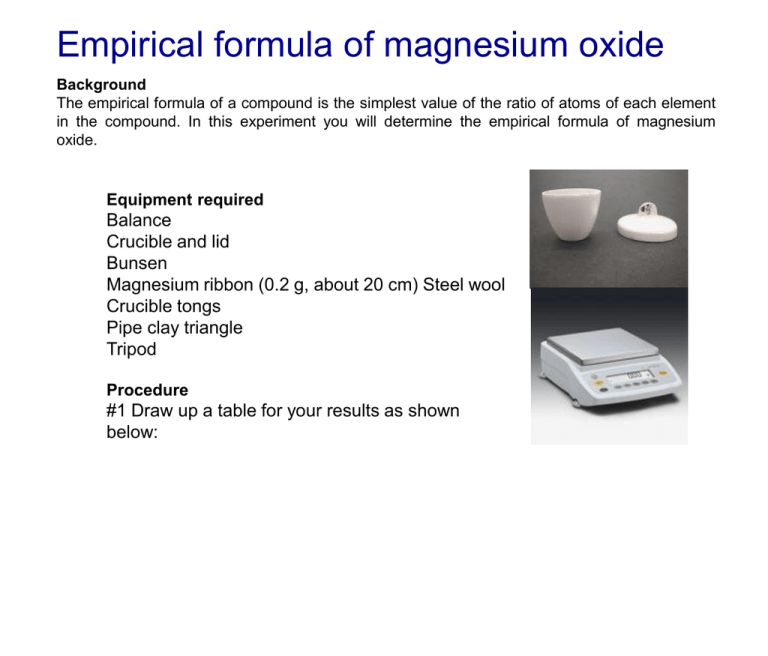
Empirical formula of magnesium oxide Background The empirical formula of a compound is the simplest value of the ratio of atoms of each element in the compound. In this experiment you will determine the empirical formula of magnesium oxide. Equipment required Balance Crucible and lid Bunsen Magnesium ribbon (0.2 g, about 20 cm) Steel wool Crucible tongs Pipe clay triangle Tripod Procedure #1 Draw up a table for your results as shown below: g g g #2 Obtain a clean, dry crucible and lid and heat them for 5 minutes over a bunsen flame. Allow them to cool. #3 Thoroughly clean the surfaces of a 20 cm strip of magnesium ribbon with steel wool. #4 Coil the magnesium ribbon so that it will fit into the crucible. #5 Accurately weigh the crucible and lid on a balance and record the mass in your results table. #6 Place the magnesium ribbon into the crucible, replace the lid and reweigh #7 Carefully heat the crucible and its contents with the lid off until the magnesium begins to glow. Immediately replace the lid and heat the crucible strongly. Continue to heat the crucible for about 10 minutes, occasionally lifting the lid with tongs to provide oxygen for the reaction. Try to avoid the loss of any magnesium oxide smoke when the lid is lifted. #9 When all the magnesium has reacted remove the lid and heat strongly for a further 5 minutes. #10 Replace the crucible lid and allow the crucible and contents to cool. #11 Reweigh the crucible with its contents and lid. Processing of results, and questions 1 From your results table calculate a the mass of magnesium which reacted b the mass of oxygen combined with the magnesium. 2 Calculate the numbers of moles of magnesium and oxygen and the ratio n(Mg) : n(0). What is the empirical formula of magnesium oxide? 3 Why are the crucible and lid heated at the beginning of the experiment before being weighed? 4 What are the possible sources of error in this experiment?
